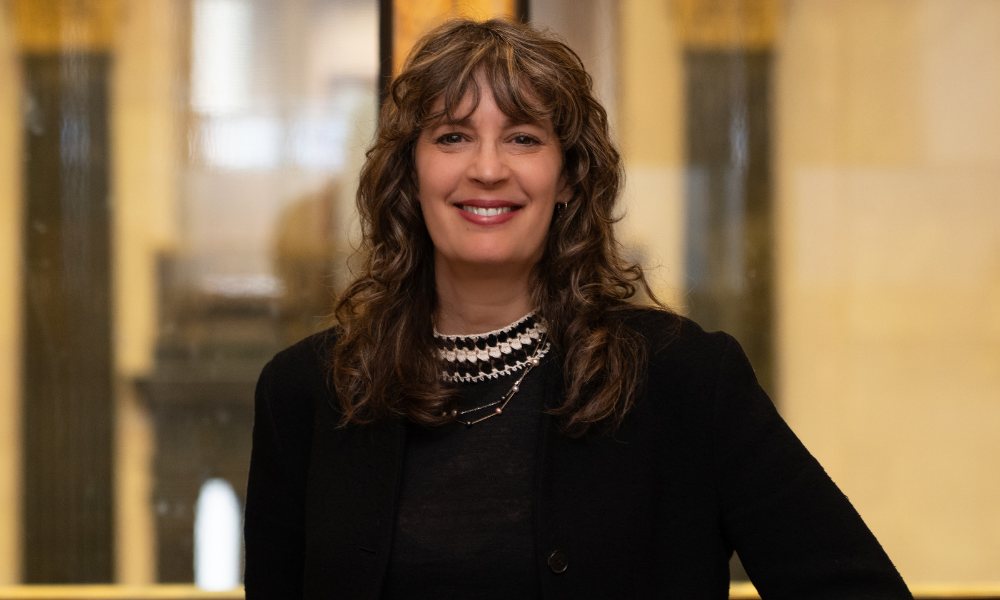Sun Life Global Investments' head of institutional business explains how her firm integrates ESG into the strategies they deliver for institutions, pensions

Anne Meloche is quick to note that Environmental, Social, & Governance (ESG) investing still lacks a single definition in Canada. This form of investing remains subjective, with different stakeholders focusing on different restrictions, strategies, and outcomes. Nevertheless, institutional demand for ESG investment strategies remains high and it’s up to Meloche to deliver those strategies to her firm’s institutional clients.
Meloche is the head of institutional business at Sun Life Global Investments. Through her work she is in constant contact with institutional clients, outlining what Sun Life Global Investments offers in terms of ESG strategies and how those strategies can align with individual client values. She explained that because Sun Life Global Investments operates a ‘fund of fund’ model, hiring external managers to construct solutions, the ESG lens they apply can help with the overall assessment of the quality of those managers.
“When you think about our commitment to responsible investment it centres on applying an ESG lens to the selection and monitoring of the managers we hire and work with,” Meloche says. “When we apply this ESG lens it serves to deepen our assessment of the managers we work with on two fronts. The first is their organizational resilience and the second is their consistency and sustainability in delivering financial value.”
Using an ESG lens can help Sun Life Global Investments determine if a manager is “future fit” according to Meloche. ESG can be used as criteria to determine if a manager is accounting for an increasingly complex and competitive world. It can also be applied to their ability to consistently and sustainably deliver financial value, under the premise that ESG integration accounts for a wider range of risk categories — such as climate risk.
Sun Life Global Investments uses a proprietary ESG assessment framework when they choose managers. That framework has three pillars: firmwide commitment to ESG, how the manager implements ESG in their strategies, and their active stewardship. Commitment is assessed through examination of the manager’s whole organization, from senior leadership down. ESG integration is assessed through concrete proof of ESG metrics included in the firm’s risk management system. Active stewardship is considered through evidence of engagement with regulators, industry, and the companies these managers invest in. That framework allows Sun Life Global Investments to fully grasp where a manager is with respect to ESG, which better informs what they can offer clients given the lack of clear definitions in ESG investing.
To manage the lack of clear definition in ESG investing, Meloche says that Sun Life Global Investments has to be focused on the integrity of their solutions. That also means they stay in their lane. Sun Life Global Investments' institutional expertise is in developing solutions for defined contribution group retirement savings plans. She cites a Sun Life report on capital appreciation plans in Canada which notes that these DC plans are developing and expanding their need for ESG considerations, incorporating ESG into all of their investment management decisions rather than using a single sleeve for ESG specialty funds or impact funds. When clients demand broader ESG integration, Meloche says her firm’s ESG assessment model can help deliver those integrated strategies.
While ESG demand from institutions is still high, it has become the subject of an increasingly loud and political backlash. Originating largely in the Untied States, ESG has been tarred with the epithet of “woke capitalism” and used as a political buzzword that implies both underperformance and other agendas. So far this movement has largely manifested in retail investing, rather than in institutions. In addressing the issue, however, Meloche says that she sees less of a backlash across both retail and institutional segments of the market and more of a need for broad education.
Meloche cites surveys from the Responsible Investment Association (RiA) to demonstrate some of the knowledge gaps around ESG and the demand that still exists for these strategies. The survey of Canadians found that sixty eight per cent of Canadians agree that they’d like to have their financial institution inform them about investment strategies that align with their values. That appetite for knowledge, Meloche says, is counterbalanced by a healthy degree of scepticism among Canadians. Her approach, therefore, is to educate investors and plan members with appropriate information and language. She notes, too, that those RiA survey results show a growing appetite for responsible investment as Canadians get younger, meaning that future plan members will expect more ESG integration in the future.
As plan sponsors look at the ESG allocations built into their DC savings plans, Meloche says that they should be aware of how those ESG allocations are built and rated. Sun Life Global Investments' approach, she argues, can give plan sponsors clarity and help drive better overall outcomes.
“Through our framework we gain massive insight into the managers we work and engage with,” Meloche says. “Those insights we gain help us evolve on our responsible roadmap. We can determine what’s most impactful for our clients and engage those criteria in our framework.”



